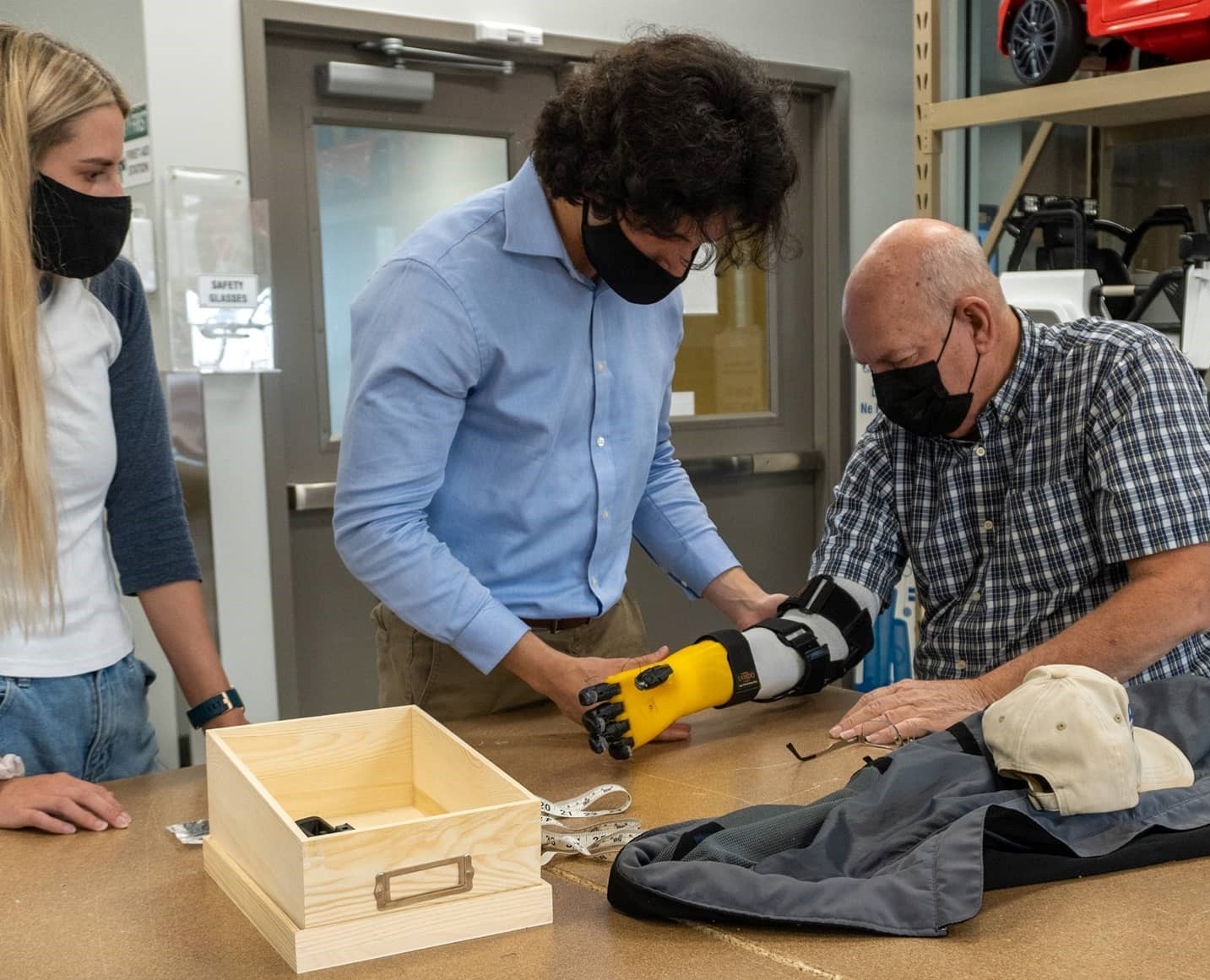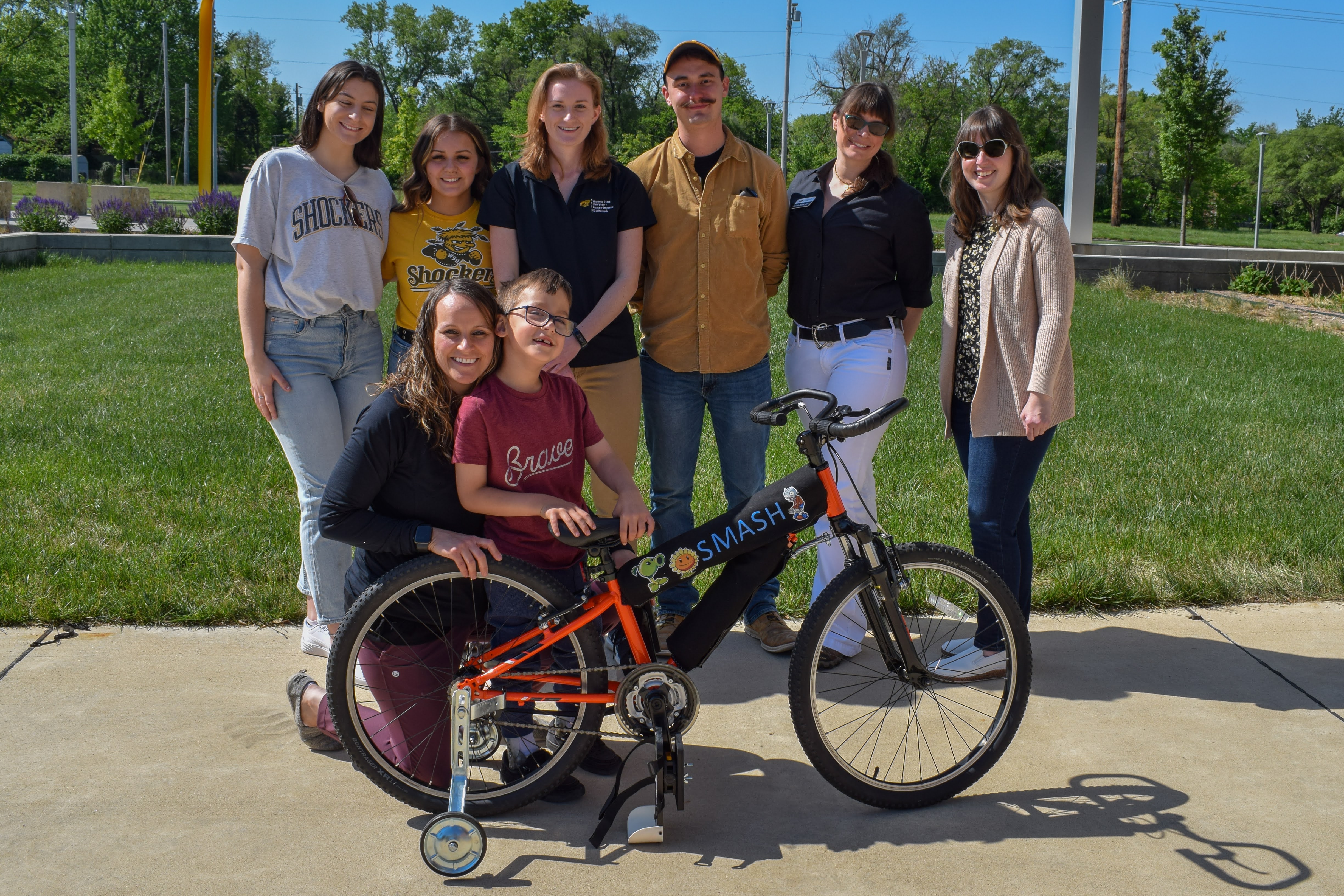Human-Centered Design
The Wichita State College of Engineering oversees multiple student-led extracurricular
projects and courses that teach students about human-centered design and give them
an opportunity to apply it to serve our community members with disabilities. Students
in engineering collaborate with students from all majors across campus in these applied
projects; students meet their customers and build empathy as they learn their challenges,
students apply their technical skills to design and prototype a solution with the
client's feedback, and then hand-deliver a custom product to improve their client's
quality of life.
While the courses and lab spaces are provided by the college, we need your support
to sponsor these life-changing projects to cover materials and supplies. Read more
about each organizatin below and considering sponsoring today!
The Wichita State University College of Engineering sponsors WSU GoBabyGo, a program
that modifies off-the-shelf ride-on toy cars for kids with disabilities. Students
from engineering collaborate with physical therapy students to customize each car
and deliver them at no cost to the family.
Consider sponsoring a car:
- $400 for a car with simple modifications
- $700 for a complex build (joystick, etc.)
Nearly 150 children have received custom ride-on cars since 2016, with another 20
anticipated in 2022. While these cars are toys--not therapy devices or medical equipment--they
do help the children towards their therapy goals in a fun way!
Every child deserves a cool costume. Sometimes, though, that’s a little more challenging
for those in walkers and wheelchairs. Students from engineering collaborate with the
cosplay student group and other students from across campus to get these fun and unique
costumes ready just in time for Halloween!
Consider sponsoring a costume:
- $400 for a simple costume creation
- $600 for a complex costume creation
Two children received a custom wheelchair costume when we began in 2021 and we will
build 3 costumes in fall 2022. Pictured here is Queen Elsa in her Ice Palace, which
was the talk of her neighborhood on Halloween night!
3D Printed Prosthetics is a program led by students for students to acquire real world
experience with 3D printed prosthetics. Students with various backgrounds in engineering,
physical therapy, and more, will meet with customers to design and create custom prosthetics
free of charge.
Consider sponsoring a prosthetic:
- Cost varies based on client's needs, beginning at $1,000 per prosthetic
Nearly 10 clients have received a custom 3D printed prosthetic since 2018, including
one girl who is using it to play cello!
The ENGR 302 Accessible Design course matches up small multidisciplinary teams of
students with people in our community with disabilities and teaches students to design
and create custom assistive technology devices for clients. Projects vary each semester
based on need.
Considering sponsoring a class project:
- Adaptive Bicycle $300
- All-terrain Jogging Wheelchair $400
- Communication Boards $500
- Other projects average $400
The course serves approximately six clients each semester it is taught; nearly 25
clients have received custom assistive products since the course began in 2020. Wichita
Adaptive Sports even received ten custom 3D-printed push gloves for their high school
wheelchair track athletes!
Assistive Technology & Accessible Design
Wichita State’s undergraduate certificate in assistive technology and accessible design
is an interdisciplinary program useful for any major wanting to create innovations
that improve learning, working and daily living for people with disabilities. Students
will learn from faculty all across campus and work with service providers to design
and create products and equipment. This certificate program positions students for
further professional certification from RESNA--the Rehabilitation Engineering and
Assistive Technology Society of North America--which will prepare students for employment
in the assistive technology field. Students in this certificate program take ENGR
302 and complete an applied project in the community.





